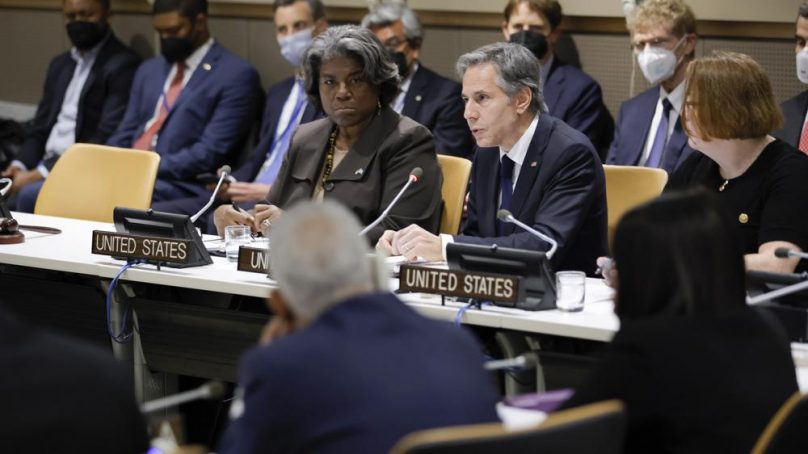
Russian, French and American leaders are crisscrossing Africa to win support for their positions on the war in Ukraine, waging what some say is the most intense competition for influence on the continent since the Cold War.
Russian Foreign Minister Sergey Lavrov and French President Emmanuel Macron are each visiting several African countries this week. Samantha Power, head of the US Agency for International Development, went to Kenya and Somalia last week. The US ambassador to the UN, Linda Thomas-Greenfield, will go to Ghana and Uganda next week.
“It’s like a new Cold War is playing out in Africa, where the rival sides are trying to gain influence,” said William Gumede, director of Democracy Works, a foundation promoting good governance.
Lavrov, in his travels across the continent where many countries are suffering drought and hunger, has sought to portray the West as the villain, blaming it for rising food prices, while the Western leaders have accused the Kremlin of cynically using food as a weapon and waging an imperial-style war of conquest – words calculated to appeal to listeners in post-colonial Africa.
Under President Vladimir Putin, Russia has been working to win support in Africa for several years, reinvigorating friendships that date back a half-century, when the Soviet Union backed many African movements fighting to end colonial rule.
“Now that campaign has gone into high gear,” Gumede said.
Moscow’s influence in Africa was on display in March during the UN vote to condemn Russia’s invasion of Ukraine. While 28 African nations voted in favour of the resolution, a significant minority of countries on the continent – 25 – either voted to abstain or did not vote at all.
Russia’s top diplomat this week visited Egypt, Congo, Uganda and Ethiopia, pledging friendship and charging the US and European countries with driving up food prices by pursuing “reckless” environmental policies. He also accused them of hoarding food during the Covid-19 pandemic.
“The situation in Ukraine did additionally negatively affect food markets, but not due to the Russian special operation, rather due to the absolutely inadequate reaction of the West, which announced sanctions,” Lavrov said in Addis Ababa, Ethiopia’s capital.
Lavrov was warmly received in Uganda by President Yoweri Museveni, who for years has been a US ally but has refused to criticise Russia over the invasion. Museveni even suggested at the outbreak of the war that Putin’s actions might be understandable because Ukraine is in Russia’s sphere of influence.
- An AP report











